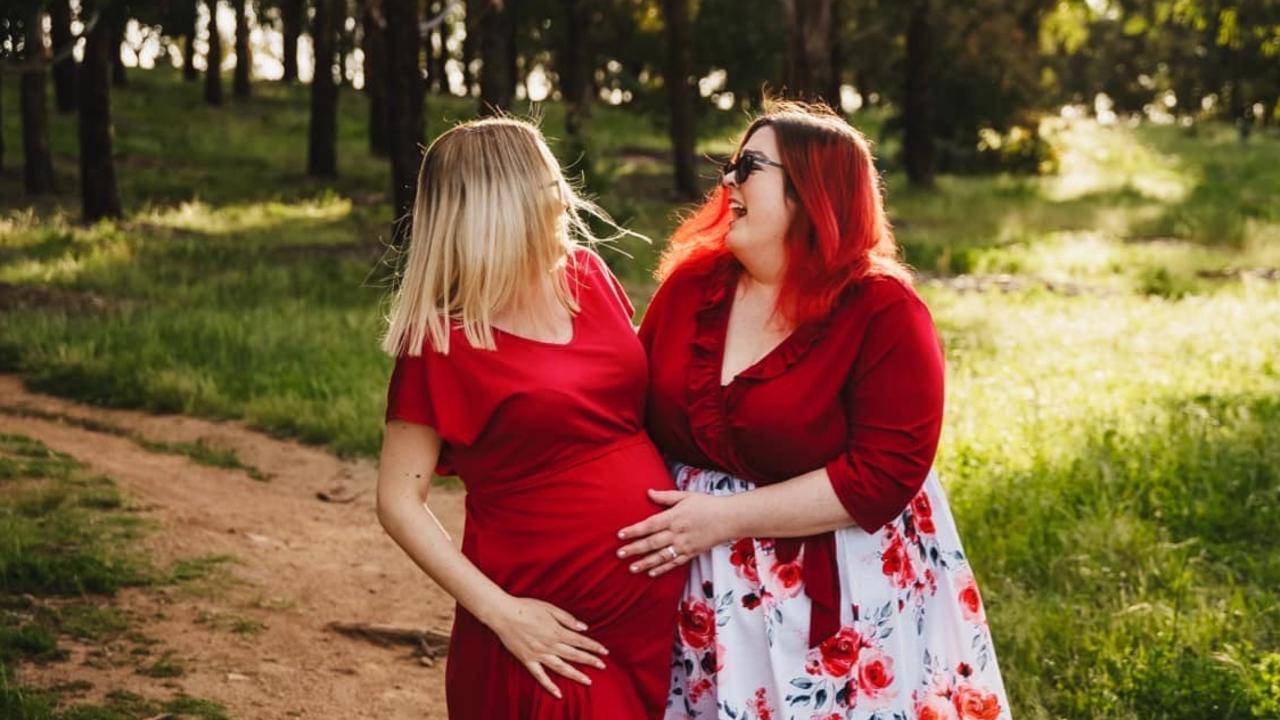How IVF saved heartbreak of recurrent miscarriage
After struggling to fall pregnant and turning to IVF, Lucy Glade-Wright took this test which helped her avoid a devastating loss.
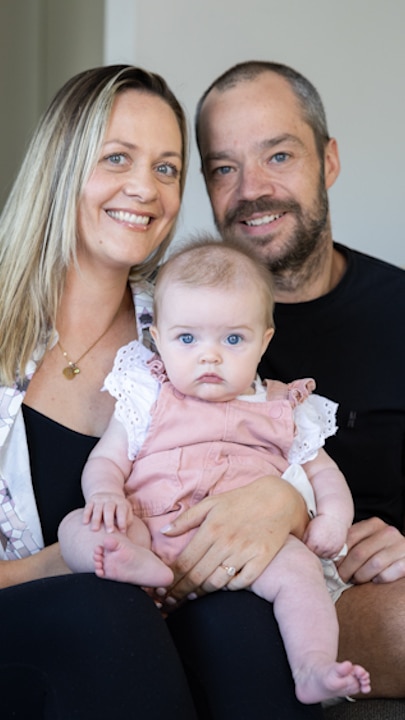
Fertility
Don't miss out on the headlines from Fertility. Followed categories will be added to My News.
Lucy Glade-Wright and Jonno Rodd say they have IVF to thank not only for their son Otis and his baby brother who will be born in May, but also for saving them from the heartbreak of recurrent miscarriage.
“I waited until I was very much ready to become a mum,” Ms Glade-Wright said.
“So I was 37 by the time we even began trying.”
She said after trying to conceive naturally for about six months they made an appointment with fertility specialist Lynn Burmeister, the medical director and owner of No 1 Fertility.
Ms Glade-Wright said it was only after doing the standard tests to prepare for an IVF cycle that a genetic translocation was discovered.
This is a type of chromosomal abnormality and while it would not cause harm to a healthy embryo, it did increase the risk of miscarriage.
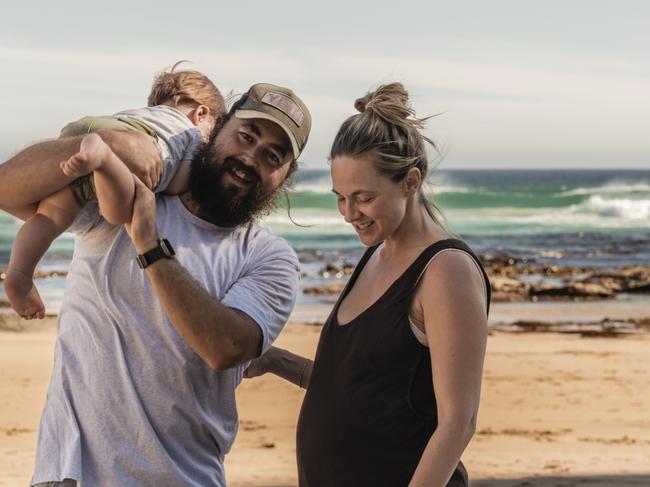
“The way Lynn put it was, if you had one normal embryo you have a 50 per cent chance of a baby, whereas if it’s an untested embryo, which in our case had a chance of genetic translocation, then the success rate is much lower, more like 25 per cent.”
Dr Burmeister said: “We take a proactive approach to screening for chromosomal structural rearrangements and it has helped many of our patients like Lucy and Jonno achieve their dream of getting pregnant.
“The screening is important because it identifies chromosomal structural rearrangements which can increase the risk of miscarriage or having a child with genetic conditions.”
She said once identified as an issue, couples can do pre-implantation genetic testing which increases the chance of selecting an embryo with a balanced or normal amount of chromosome material for transfer.
Medicare provides rebates for PGT-SR in eligible cases.
The couple did several egg collection cycles first to get as many eggs as possible before creating embryos for transfer.
“The thinking was, the more eggs you have, the more you’re increasing your chance of creating a healthy embryo,” Ms Glade-Wright said.
In the first year she did five egg collection cycles that delivered 33 eggs, resulting in nine embryos.
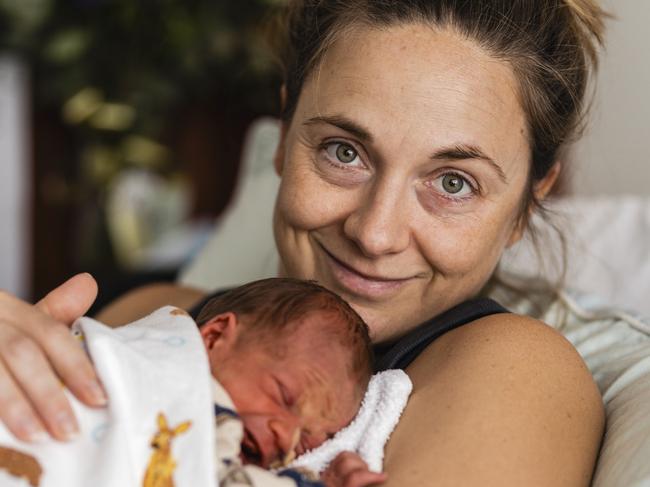
“The embryos were genetically tested, but only one was healthy and viable,” Ms Glade-Wright said.
“From 33 eggs to one embryo was a heartbreaking phone call, I must admit, because that was a lot of work and a lot of money, and physical and mental anguish. To get one embryo was definitely a very hard thing to process.”
The couple faced a decision to either transfer that one embryo, or go through more egg collection cycles, which they decided to do to help increase their chance of having a baby.
Another three cycles created a further 33 eggs, but again delivered just one healthy and viable embryo.
“It made me very aware that we would have been trying for a long time, naturally, regardless of age and would likely have faced recurrent miscarriage,” Ms Glade-Wright said.
“So IVF obviously helped to eliminate a lot of disappointment if we had been going through the process naturally.”
When they transferred one embryo, Ms Glade-Wright said they were shocked, but delighted that it actually worked. Twice.
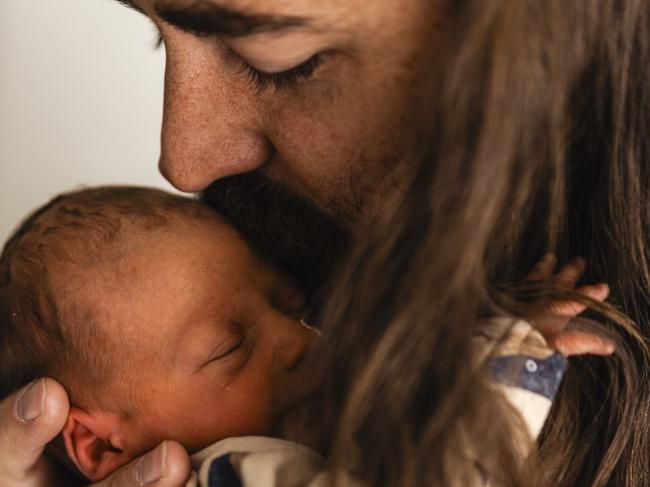
Otis is soon to turn 15 months old and the family is excitedly awaiting the birth of their second son via IVF in May.
“The reason why I’m sharing this is because IVF can be quite a lonely and isolating experience, even if you have the support of a partner or family or friends,” Ms Glade-Wright said.
“It is emotionally, physically and financially taxing, so I think anyone going through that experience should be incredibly proud, regardless of what happens, because for some people, unfortunately, they might not become a parent in the end.
“There’s just so much involved in IVF. And if you’re doing it, and you’re going through the motions, or you have been through it, I would want people to feel really proud about all the effort they’ve put into becoming a parent.”
More Coverage
Originally published as How IVF saved heartbreak of recurrent miscarriage




